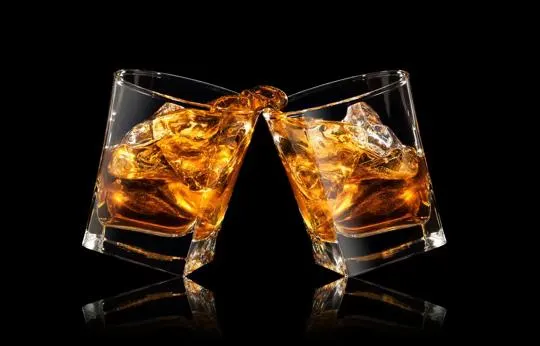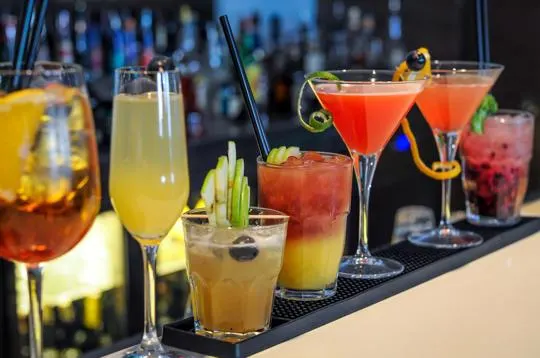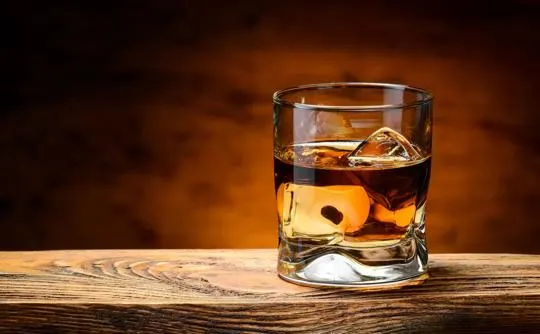Whiskey and liquor aren’t just words that get tossed around at a bar.
They’re categories. Broad ones.
Ever stood in front of a liquor shelf, baffled? We’ve all been there.
Here’s the lowdown. While all whiskey is liquor, not all liquor is whiskey.
The difference? It’s all in the details. We’re talking about the mash, the distillation process, age, and origin.
It’s the subtleties that separate them. Ever sipped on a Scotch and thought, “This ain’t bourbon”?
That’s the distinction talking. In this piece, we’re deciphering these nuances.
Stick with us, and you’ll be a connoisseur in no time.
What is Whiskey?

Whiskey is an alcoholic beverage made by distilling grains, such as corn, barley, or wheat.
It is aged in oak barrels and has a unique flavor profile.
It depends on the type of grain used, the barrel, and how long it was aged.
You should know that there are different types of whiskey.
These are bourbons, ryes, and scotches.
Each has its own regulations on production.
Generally, bourbon must be from America and have 51% corn in its mashbill.
Rye must have 51% rye in its mashbill and can be made anywhere.
Scotch must be from Scotland and follow strict guidelines.
Whiskey can be enjoyed neat or on the rocks.
Or it can be an ingredient in cocktails.
It has higher alcohol content than beer or wine.
So, consume it in moderation.
Knowing the differences between whiskey and other types of liquor can help with choosing what to get at the bar or liquor store.
What is Liquor?

Liquor is made of different alcoholic drinks.
These include gin, vodka, rum, tequila and whiskey.
It is produced by heating a fermented liquid such as fruit, grains or vegetables until it turns to steam.
The steam is then condensed and turned into liquid alcohol.
Each type of liquor has its own distinguishing features in the distilling process.
For example, whiskey is made of various grains such as corn, barley and rye.
It is stored in oak barrels for many years, allowing it to develop a deep flavor and complexity.
Gin is infused with botanicals like juniper berries.
Tequila, on the other hand, is distilled from agave plants.
Differences Between Whiskey and Liquor

Whiskey and liquor are often confused.
Knowing the difference will help you find the right drink for any situation or recipe.
1 – Distillation Process
Distillation is the basis for all spirits.
It starts with heating a liquid until it evaporates.
The steam is cooled to create a liquid with higher alcohol content.
Whiskey is distilled from grains.
Liquor can be made from fruits or veggies.
The key difference is in their starting materials.
That’s why they have different flavors.
Whiskey production involves specific grains like corn, rye, wheat or barley.
They must be fermented before distillation.
For liquors like vodka, corn, potatoes, sugar beets or grapes are fermented.
Then the alcohol is extracted through distillation.
Aging plays a role in Whiskey’s flavor and aroma.
It is usually aged in oak barrels for years, which adds its unique properties.
2 – Ingredients Used
Whiskey and liquor are both alcoholic beverages, yet they differ.
Whiskey is made from fermented grain mash, while liquor is based on a distilled spirit.
Aged in oak casks, whiskey has a unique flavor.
Liquor, however, uses several ingredients like fruits, herbs, and spices.
It’s also distilled multiple times to get the desired alcohol content.
Whiskey can be drunk neat or with ice, but liquor is often used for cocktails due to its flavor combinations.
There is no one type of liquor – gin, vodka, rum, and tequila all fall under this category.
Whereas, whiskeys like scotch or bourbon differ.
The main difference is in their ingredients – whiskey relies on grains, while liquors have more diverse contents.
This affects their flavors and markets.
3 – Aging and Maturation
Aging and maturation are vital for making delectable whiskey and liquor.
Both of these processes work to better the flavor, texture, and smell of the distilled drink.
Aging takes place during the initial storage stage with the liquor being stored in wooden barrels for a certain period of time.
Maturation is done after the alcohol has been extracted from the barrel.
During maturation, specialists further refine the taste and add extra flavors before bottling.
4 – Flavor Profiles
Whiskey and liquor are two distinct alcoholic drinks.
Whiskey is usually made from barley, rye, corn, or wheat and is known for its warm flavors: vanilla, caramel, oak or smoke.
Irish whiskey is smooth due to its triple distillation process and Scotch whiskey has notes of peat smoke and earthiness.
Tequila has herbal notes of agave while brandy can be fruity or woody with hints of spice.
Liquor’s flavor is determined by its ingredients.
Absinthe has licorice taste from anise, vodka has a neutral taste and brandy may be cognac-like fruitiness or Armagnac-like nuttiness.
So, whiskey has warm flavorings and liquors have varied tastes depending on the drink chosen.
Similarities Between Whiskey and Liquor
Whiskey and Liquor are often confused.
But what sets them apart? Both are alcoholic beverages made from grains or fruits.
Whiskey is a type of liquor.
The term ‘liquor’ covers any drink with high alcohol content.
Whiskey specifically comes from fermented grain mash.
It’s aged in barrels which gives it a unique flavor.
Liquors like vodka, gin, rum, tequila, brandy and liqueurs don’t need to be aged in barrels.
They’re usually clear.
Whiskey and liquor offer luxurious flavors and aromas.
They’re popular among adults.
Whether you want to take shots or sip slowly – there’s something for everyone.
Popular Types of Whiskey and Liquor
Whiskey and liquor are often confused.
But they’re not the same.
Whiskey is made from fermented grain mash.
Liquor is made from any distilled beverage.
Examples of whiskey are bourbon, scotch and rye.
Popular liquors include vodka, rum and gin.
Each has its own flavor and origin story.
For example, bourbon must be from America and contain 51% corn.
Scotch must be aged 3 years in Scotland.
Irish whiskey is made from malted barley.
Japanese whisky often uses peat smoke.
Rum can be made from sugarcane or molasses.
It’s aged to create different flavors.
Gin is flavored with juniper berries.
Not all whiskey and liquor are the same.
Their production, ingredients and origins differ.
How to Enjoy Whiskey and Liquor?
Sipping whiskeys and liquors is an art form.
Educate yourself on the types and qualities of each to maximize your drinking experience.
Here are 6 tips:
- Get quality spirits.
- Pick the best glass for your drink.
- Serve at the right temperature.
- Take small sips.
- Notice smell and taste.
- Mix drinks to find what works for you.
Premium spirits have unique flavors from aging and blending.
There’s a vast range of flavor profiles, and experts can detect subtle nuances with practice.
Have fun pairing whiskies and mixing other classic drinks to truly enjoy them.
Conclusion
In the end, much of the categorization between whiskey and liquor depends on where you’re from and what type of alcohol you grew up consuming.
Each spirit has its own characteristics, flavor, production methods and history that influence how it is enjoyed and defined.
The biggest takeaway from this article is that all liquors are not equal, but each one has something unique for you to enjoy and explore.
Now that you have an understanding of the differences between whiskey and liquor, why not grab a few different bottles to see which one suits your tastes best? From sweet bourbon to smoky Scotch, there’s a variety out there waiting for you to discover.
You’re sure to find your favorite soon enough.

Leave a comment